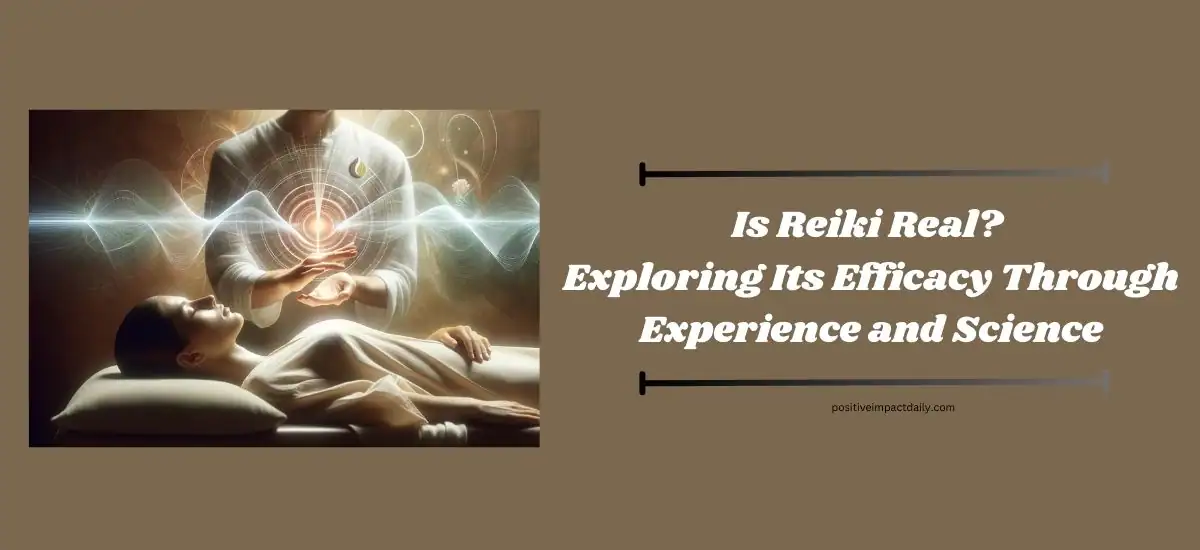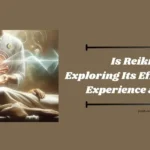Have you ever wondered if there’s more to Reiki than meets the eye? Like many, I was skeptical until a transformative session in Boston changed my perspective. This ancient practice, often shrouded in mystery, claims to harness universal energy for healing. Critics dismiss it as pseudoscience, while proponents swear by its effects.
In this article, we’ll dive deep into both anecdotal experiences and scientific studies to address the burning question: Is Reiki real? By blending personal insights with empirical evidence, we aim to shed light on Reiki’s legitimacy and effects.
Addressing the Question: “Is Reiki Real?”
Is Reiki a genuine therapeutic tool or just a placebo? This article approaches the question from multiple angles—logical reasoning, scientific validation, and personal experiences. We’ll explore the comforting nature of Reiki compared to universally accepted forms of touch, like a reassuring hug, and examine scientific studies that test its efficacy.
Whether you’re a skeptic a believer, simply curious, this balanced examination aims to provide a clearer understanding of Reiki, encouraging an informed decision about its role in health and wellness.
A Logical Response to Reiki’s Realness
Reiki operates fundamentally as a sophisticated form of human touch that aims to comfort and heal, transcending mere physical contact by harnessing the power of intention and subtle energy. It’s important to delve deeper into how this practice works and why it can be a significant adjunct to traditional healing methods.
Human Connection and Trust: At its essence, Reiki builds on the fundamental human need for connection and trust, similar to the way a comforting touch soothes an infant or a supportive hug uplifts a friend. This type of connection is primal and deeply ingrained in our psyche, fostering a sense of safety and belonging that can initiate profound therapeutic processes.
Natural Comfort Through Touch: The human body has a well-documented, positive response to gentle, caring touch. Research in developmental psychology consistently shows that secure physical contact reduces cortisol levels—the stress hormone—and stimulates the release of oxytocin, known as the ‘love hormone,’ which promotes feelings of well-being and relaxation.
This biochemical response enhances the body’s own healing abilities, suggesting a clear physiological basis for how Reiki might facilitate improved health outcomes.
Intentional Energy Direction: Unlike random or casual touch, Reiki involves a deliberate and focused direction of energy. Practitioners are trained to channel their intention towards promoting the recipient’s healing, a process that, although metaphysical in its explanation, aims to activate the body’s natural restorative functionalities.
The concept of intention playing a role in healing is also seen in placebo effects, where the expectation of healing can result in measurable health improvements, even when no conventional therapeutic intervention has occurred.
Psychological Benefits: The psychological benefits of Reiki are not to be underestimated. Just as children feel secure and valued through physical reassurance, adults can experience similar psychological and emotional relief during and after Reiki sessions. This can manifest as reduced anxiety, enhanced mood, and a better overall sense of well-being.
These layers of interaction—physical, emotional, and energetic—suggest that Reiki’s effectiveness might stem not only from its ability to meet deep-seated human needs for touch and emotional security but also from its capacity to engage the body’s physiological and psychological healing mechanisms uniquely and profoundly.
The logic behind Reiki extends beyond the mystical; it taps into universal human experiences and scientifically understood reactions to touch and intention, providing a convincing, rational basis for its practice and effects.
A Scientific and Research-Based Response
Recent studies have begun to shed light on Reiki’s potential benefits, supported by research from institutions like the Cleveland Clinic and the National Institutes of Health. While the scientific community remains divided, the evidence tilting in favor of Reiki’s positive effects on physical and emotional well-being is compelling.
- Clinical Studies: Research conducted by Brigham and Women’s Hospital indicates that Reiki may help reduce pain and anxiety in patients undergoing surgery.
- Physiological Effects: Studies suggest that Reiki sessions can lead to measurable reductions in heart rate, blood pressure, and stress hormones, similar to the effects of meditation.
- Support for Well-being: The calming effects observed in clinical settings support the notion that Reiki can enhance overall patient care, complementing traditional medical treatments by fostering relaxation and emotional ease.
These findings highlight Reiki’s potential as a complementary therapy in medical settings, providing a non-invasive, risk-free option to aid patients’ recovery and comfort.
The Limitations of Reiki
Reiki is not a panacea. It should be seen as a complement to traditional medical treatment, not a replacement. It’s best used to enhance the body’s natural healing processes and promote relaxation and well-being.
- Supportive, Not Curative: Reiki aids in relaxation and stress reduction, which can indirectly benefit overall health but it does not cure diseases directly.
- Rest and Recuperation: Much like rest is recommended for recovering from minor illnesses like a cold, Reiki facilitates a restful state that supports the body’s healing mechanisms.
Understanding these limitations helps set realistic expectations for what Reiki can achieve, preventing misconceptions and disappointment.
A Theoretical and Spiritual Perspective on Reiki
Reiki often faces criticism for its spiritual associations, termed “woo-woo” by skeptics. However, its spiritual dimension is what many find appealing, offering a form of healing that transcends religious boundaries.
- Universal Energy: Reiki is based on the idea of channeling universal life energy, a concept found in many spiritual and cultural traditions.
- Inclusivity: The practice does not require religious belief, making it accessible to everyone, regardless of their faith or lack thereof.
- Meditative Practice: Beyond the spiritual, Reiki serves as a form of meditation, helping individuals achieve mental clarity and emotional calm.
This broader understanding invites skeptics to view Reiki not just as a spiritual practice but as a meditative aid that enhances mental and emotional health.
Conclusion
As a Reiki practitioner, I’ve witnessed its profound impact on clients’ well-being, aligning closely with scientific findings that underscore its benefits. Reiki is real to those who experience its calming effects and find solace in its practice.







